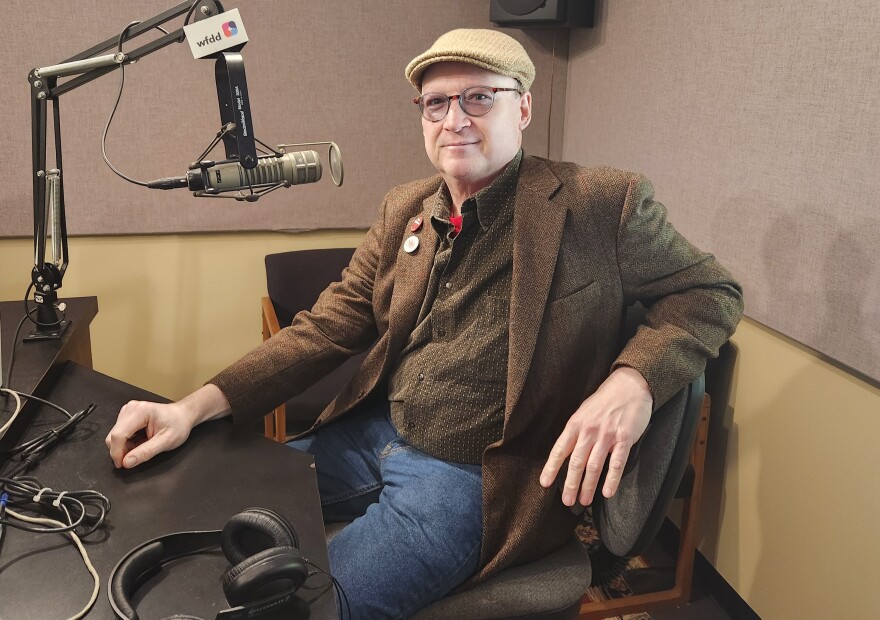A new biography chronicles the life of North Carolina musician Doc Watson.
For many people, Watson is the face of traditional music, with a voice and finger-picking style that has influenced generations of musicians. Born and raised on a High Country farm, Watson rose to fame in the early '60s, bridging the gap between folk music and bluegrass, and would go on to release dozens of albums and win multiple Grammys.
Doc Watson: A Life in Music is a new book by Greensboro-based author Eddie Huffman. It chronicles Watson’s life and legacy in the world of roots music and shares details about his relationship with his son Merle, the namesake of the annual Merlefest in Wilkes County.
Huffman will host a book signing Wednesday night at the Gas Hill Drinking Room, adjacent to the Ramkat in Winston-Salem, where he’ll be joined by musician Riley Baugus.
Huffman joined Neal Charnoff recently in the WFDD studios to talk about the book.
Interview highlights:
On Doc's attitude toward being a musician:
"Doc often said that he would probably have done something else for a living if he had not been blind, that he would have been an electrician or a carpenter or something along those lines. I mean, he had some ego, based on some of the people who played with him, but really didn't take himself that seriously; he did not see himself as the guitar god that a lot of other people saw him as."
On Doc's blindness:
"One of the theories is that his grandmother was a midwife and delivered him, along with lots of people in the community, and that she was using, I think, silver nitrate drops to prevent infection. And apparently the theory was that those drops were infected and actually caused his blindness. He had some light perception up into his 50s, I believe. But after he was a baby, he could really only tell if it was light or dark. That was at the extent of his vision."
On his relationship with his son Merle:
"Doc always said that Merle was his best friend. ... As capable as Doc was, he needed someone to guide him around hotels, needed someone to guide him to the bathroom, needed someone to tell him what was on a menu, and that was exclusively Merle's job for the first few years of their partnership, They started bringing friends on the road later, and Merle kind of got a break from all those responsibilities, including taking Doc to breakfast at 6 a.m., which he wanted to do every, every day."
On why there is a statue of Doc in Boone:
"Doc is one of the most important traditional musicians ever ... the style of guitar playing, of acoustic guitar playing in traditional music, bluegrass, and country music over the last few decades is because of Doc. And also the fact that he's from Watauga County. He's a local guy. He used to play on the street corner just across from that statue. So he had a long history in Watauga County, long history in Boone, lived there his entire life, and as I say in the book, he's the most famous person to come out of Watauga County since Daniel Boone."

